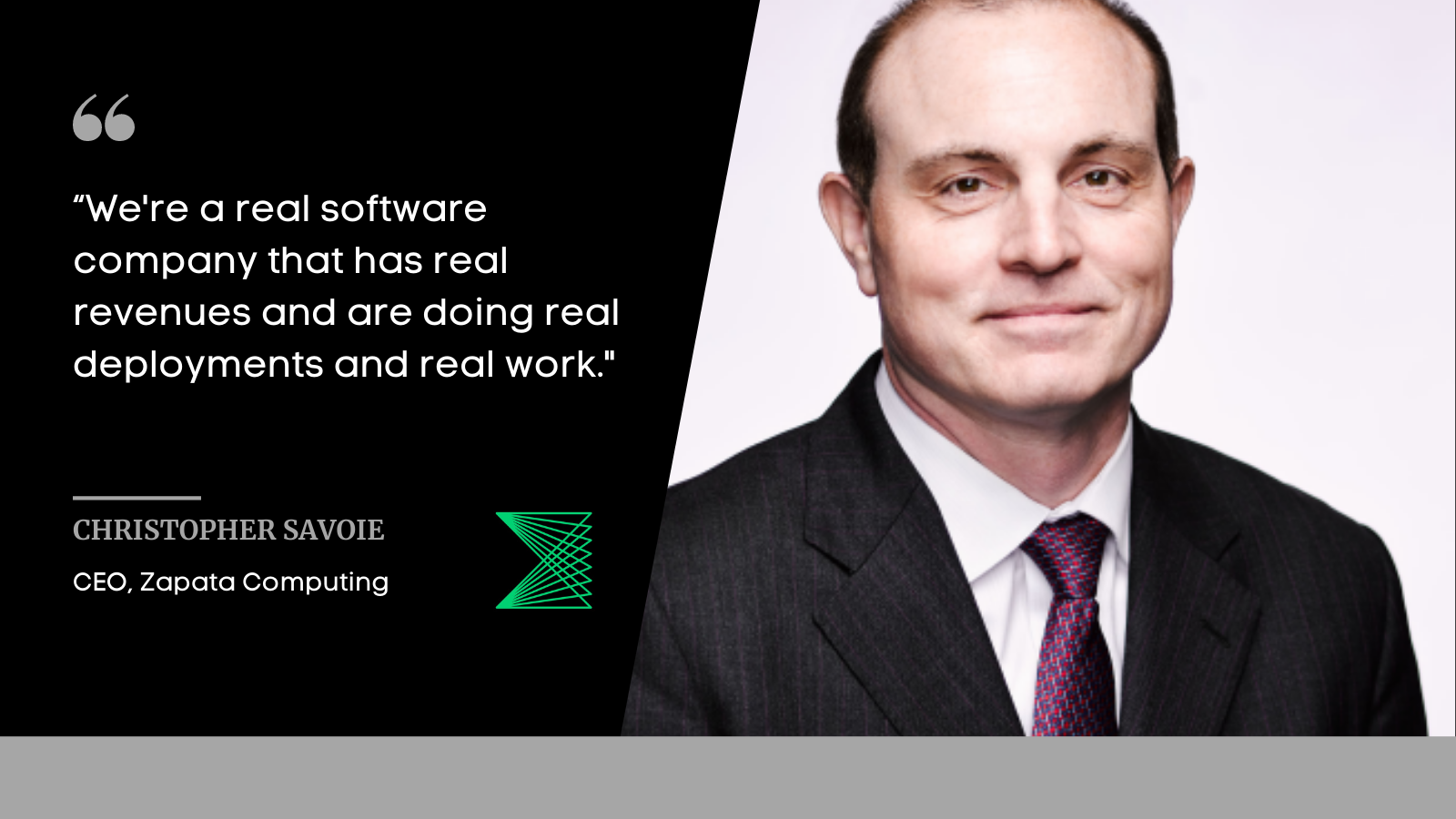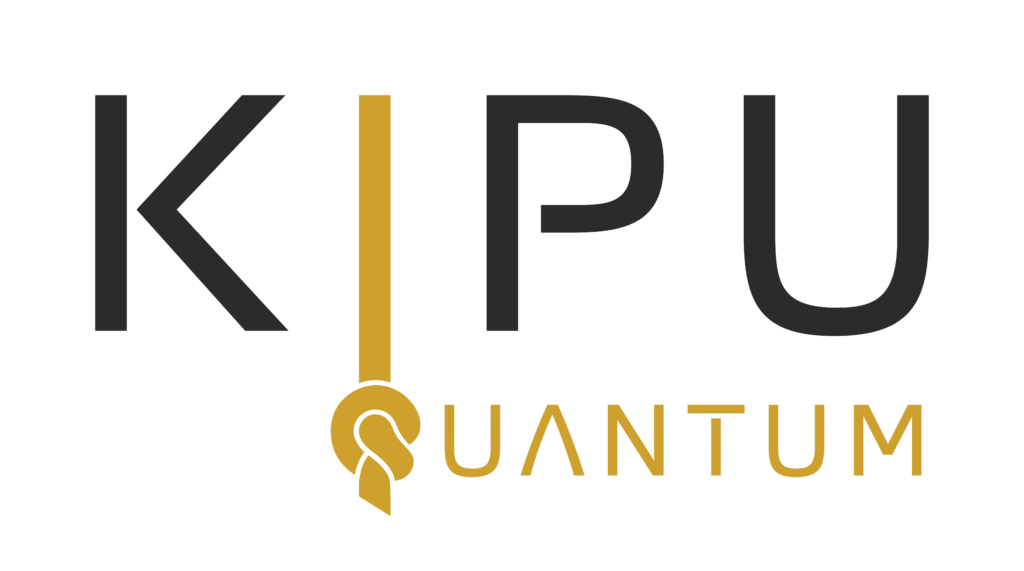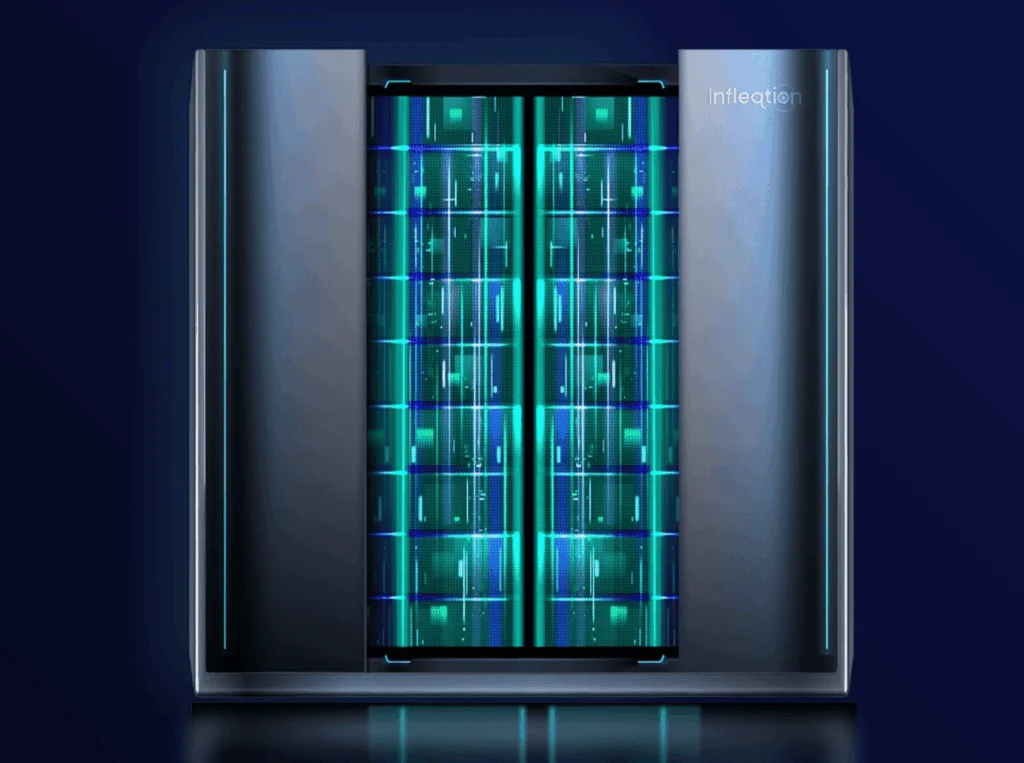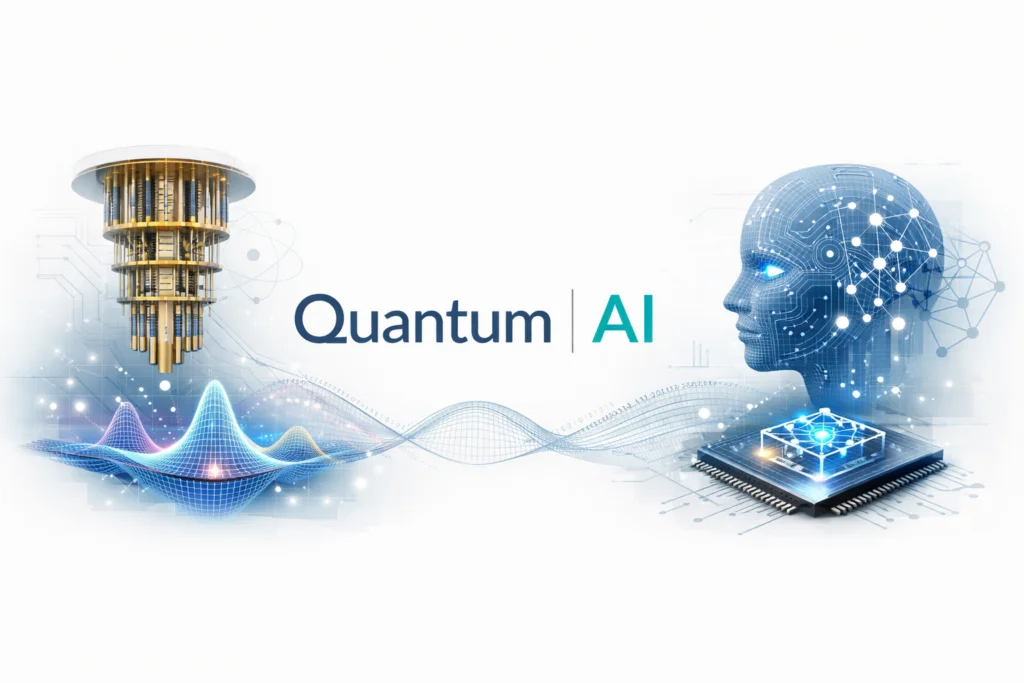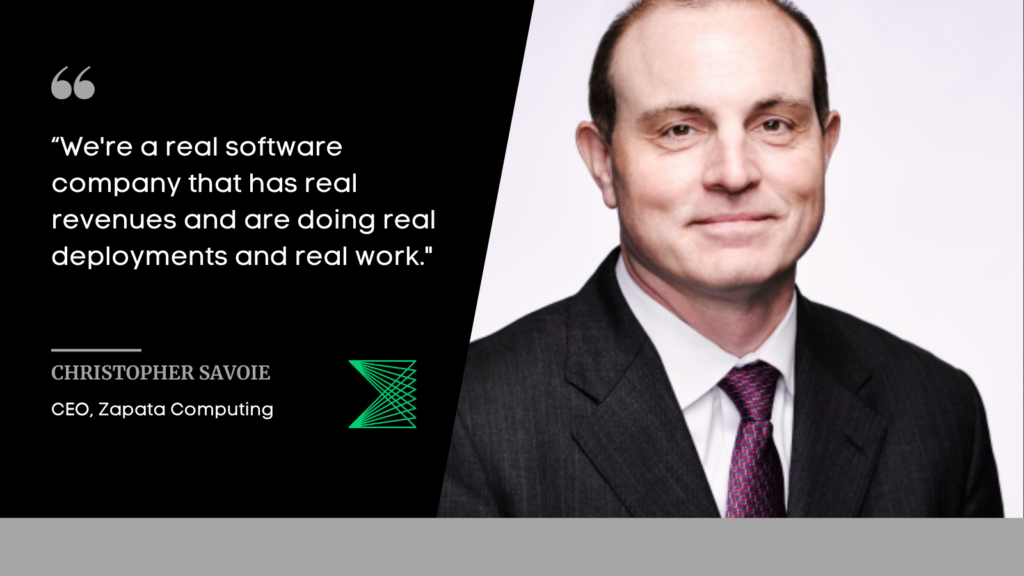 It’s easy to become mesmerized by the, at times baffling, weirdness of quantum science and be lured in by the massive potential of quantum technology. Zapata Computing, a pioneering quantum software company, is still amazed at quantum’s potential — but it’s time to go to work.
It’s easy to become mesmerized by the, at times baffling, weirdness of quantum science and be lured in by the massive potential of quantum technology. Zapata Computing, a pioneering quantum software company, is still amazed at quantum’s potential — but it’s time to go to work.
“We’re a real software company that has real revenues and are doing real deployments and real work,” said Christopher Savoie, CEO and co-founder of Zapata Computing (TQI: Zapata Computing).
He said that the company’s Orquestra, a platform for quantum-ready applications, is delivering real enterprise solutions. It’s a technology that is years in the making and is growing and improving with each customer interaction.
“We’ve learned a lot,” Savoie said during an interview at Q2B 2021. “We’ve been doing quantum solutions with big enterprise since we started in 2018. So we’ve had four years under the belt of actually doing these things with our platform.”

He added the company is moving from educating and training their customers and partners into a mode that allows their customers the ability to create their own capabilities using the technology.
While some companies and entrepreneurs in the quantum space seem to be waiting for examples of use cases that demonstrate quantum supremacy, or quantum advantage at the least, Zapata is not letting the perfect be the enemy of the good. It’s designing solutions that are better — perhaps incrementally right now — than what their customers can find in classic approaches.
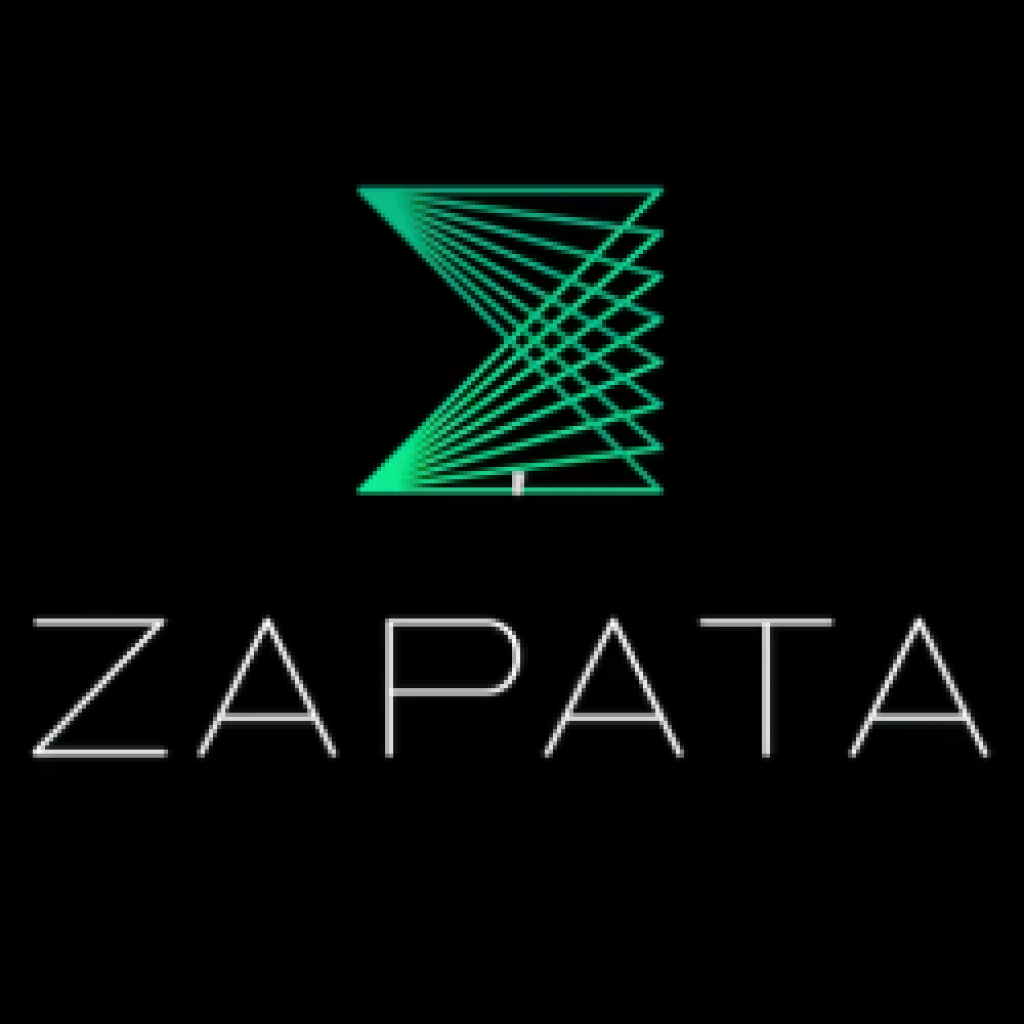 It’s a mode of moving quantum beyond a scientific curiosity and into real business improvements.
It’s a mode of moving quantum beyond a scientific curiosity and into real business improvements.
“It’s the building of models, building of capabilities, building of algorithms for a workflow, and then putting that actually into production, “said Savoie. “This is something I think this industry really hasn’t focused a lot on, [the industry] has been experimenting and playing with a toy, and we’re now moving into a regime where we’re finding advantage. We’re finding separation.”
Savoie said that the advantage they want to offer currently may not be exponential, but it is significant — and can pay significant dividends.
“No, it’s not exponential separation yet,” said Savoie. “Maybe it’s only quadratic. But in the context of things like machine learning, that’s significant. Because would you if you had a machine learning model, for example, that is 2% better at detecting cancer? Do you want the one that’s 2% less good?”
Zapata was spun out of the Harvard lab of quantum pioneer Alán Aspuru-Guzik in 2017. It has since become one of the leaders in developing quantum software and algorithms for business.
You can learn more about Zapata here.
Read more:
- Top 18 Institutions Leading Quantum Computing Research in 2022
- 20 of the World’s Top Quantum Investors in 2022
- Women in Quantum Series: Katherine Londergan, CMO at Zapata Computing
If you found this article to be informative, you can explore more current quantum news here, exclusives, interviews, and podcasts.

